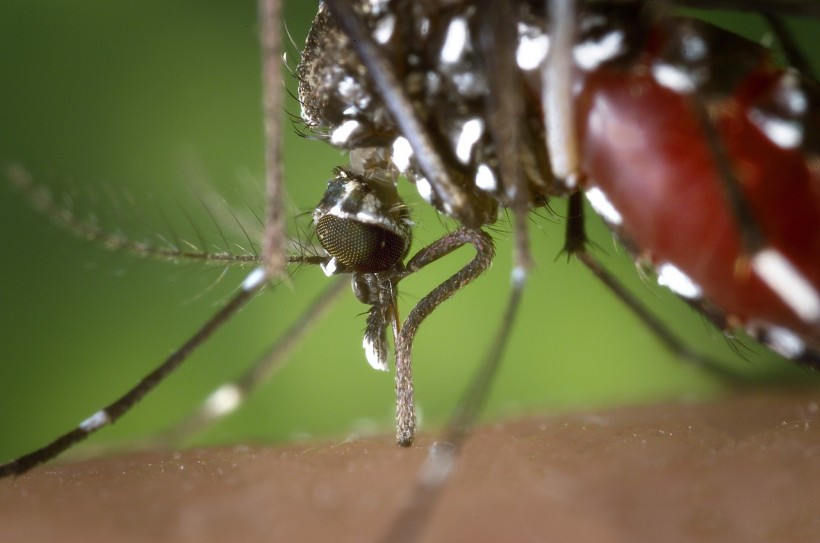Scientists have found a helpful way for mosquitoes by making them into a vaccine delivery system. The genetically modified parasites known as Plasmodium falciparum deliver malaria vaccines through mosquito bites. A clinical trial for the delivery system has been underway in the United Kingdom.
The paper "A Genetically Engineered Plasmodium falciparum Parasite Vaccine Provides Protection From Controlled Human Malaria Infection" published in Science Translational Medicine uses CRISPR to genetically modify the mosquitoes. It is an intriguing method to deliver vaccines, especially on their effectiveness.

Mosquitoes Turned Into Malaria Vaccine Delivery System: How Effective Is This Method?
Genetically Modifying Mosquitoes To Deliver Malaria Vaccines
Malaria parasites are found in the salivary glands of Anopheles mosquitoes as they are transmitted via mosquito bites. The disease is common in Africa due to its warm climate that suits the growth of the parasite.
Countries have tried to reduce malaria cases by controlling the population of mosquitoes. They have used mosquito netting, insecticide, and anti-malarial drugs and released genetically modified mosquitoes that do not have the ability to bite or reproduce. But these methods are not enough to curb the 240 million cases of malaria a year, which is why vaccines are needed.
NPR reports a clinical trial in which scientists led by Dr. Sean Murphy from the University of Washington use mosquitoes to deliver malaria-causing Plasmodium parasites that are genetically modified. Once the mosquitoes bite, the body is still instructed to make antibodies against the weakened parasite so it is prepared to fight the real infection.
Murphy clarifies that they do not intend to use mosquitoes to vaccinate millions of people. Trials such as this have been done before in which mosquitoes are used to deliver malaria vaccines although this is not common.
The team would like to try this route because of how costly and time-consuming it is to develop a formulation of the malaria parasite to be delivered using a needle. The parasites mature so fast inside mosquitoes, which for scientists makes sense to use the insects to deliver malaria vaccine.
How Effective Is This Method?
BGR reports that it is basically like using 1,000 small flying syringes. But like ordinary vaccines, the biggest problem with using mosquitoes as a vaccine delivery system is the effectiveness.
The findings suggest that 14 out of 26 participants who were exposed to malaria contracted the illness, which means that the method was only around 50% effective. But this does not mean that it was a failure. Rather, it shows that improvements could be made to have a higher effectiveness rate.
Researchers told NPR that they are planning to use the mosquitoes to deliver vaccines in a more controlled fashion since releasing a massive number of these insects raises very deep questions about bioethics and consent as they could not control who will be inoculated and exposed.
Dr. Kirsten Lyke, a physician and vaccine researcher at the University of Maryland School of Medicine who is not part of the clinical trial, said that the use of genetically modified live parasites is a "game-changer" for vaccine development.
Murphy believes this method could someday result in a vaccine that is more effective than the first malaria vaccine, called the RTS.S vaccine from GlaxoSmithKline, which was approved last year by the World Health Organization (WHO).
RELATED ARTICLE: Malaria Transmission: Scientists Engineer Mosquitoes to Slow Growth of Parasites That Cause the Disease
Check out more news and information on Mosquitoes in Science Times.




![Earth's Quasi-Moon Kamo‘oalewa Could Originate From Lunar Surface Not Asteroid Belt [Study]](https://1721181113.rsc.cdn77.org/data/thumbs/full/53275/89/56/50/40/earths-quasi-moon-kamo-oalewa-could-originate-from-lunar-surface-not-asteroid-belt-study.png)









